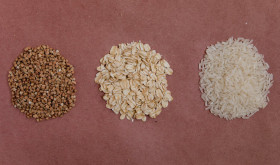
Colorectal cancer (CRC) is a major global health concern, with early detection being crucial for successful treatment and survival rates. Traditional screening methods like colonoscopy, while effective, can be invasive and uncomfortable for patients. This has led to significant “Advancements in Non-Invasive Screening” techniques, aiming to provide easier, more comfortable, and equally reliable methods for early colorectal cancer detection.
The latest developments in non-invasive screening techniques have revolutionized how we approach colorectal cancer screening. These advancements not only offer greater comfort and convenience for patients but also have the potential to increase screening uptake, thereby detecting colorectal cancer at an earlier and more treatable stage.
Innovations in Faecal Immunochemical Testing
One of the most notable advancements in non-invasive screening is the faecal immunochemical test (FIT). This test detects hidden blood in the stool, a possible sign of colorectal cancer. FIT is more sensitive and user-friendly compared to the traditional faecal occult blood test (FOBT), and it does not require dietary or medication changes before taking the test. Its simplicity and non-invasive nature make FIT a more appealing option for routine screening.
Stool DNA Testing: A Leap Forward in CRC Screening
Another significant development is the stool DNA test. This test looks for certain DNA markers in stool samples that are often associated with colorectal cancer or precancerous polyps. The most well-known example is Cologuard, which combines FIT with a DNA-based test. This dual approach enhances the detection rate of not just cancer but also advanced adenomas, the precursors to colorectal cancer.
The Role of Virtual Colonoscopy in Early Detection
Advancements in imaging technology have also led to the development of virtual colonoscopy, or CT colonography. This technique uses CT scans to create detailed images of the colon and rectum, allowing for the detection of polyps and cancer. Virtual colonoscopy is less invasive than traditional colonoscopy, does not require sedation, and is quicker to perform. However, if polyps or other abnormalities are detected, a traditional colonoscopy may still be necessary for removal or biopsy.
Blood-Based Biomarkers: The Future of CRC Screening
Blood-based biomarker tests represent a breakthrough in the realm of “Advancements in Non-Invasive Screening.” These tests look for specific biomarkers in the blood that may indicate the presence of colorectal cancer. Research is ongoing in this area, with several potential biomarkers being studied. The goal is to develop a simple blood test that could reliably screen for colorectal cancer.
Artificial Intelligence: Transforming Cancer Detection
Emerging technologies like artificial intelligence (AI) and machine learning are also being integrated into non-invasive screening methods. AI algorithms are being developed to analyse medical imaging more accurately and efficiently, potentially identifying signs of colorectal cancer that might be missed by the human eye.
Gut Microbiome Analysis in Non-Invasive Screening
The microbiome is another area of interest in non-invasive screening advancements. Research suggests that changes in the gut microbiome may be linked to colorectal cancer. By analysing the types and levels of bacteria in stool samples, it might be possible to detect colorectal cancer or precancerous conditions.
In conclusion, the “Advancements in Non-Invasive Screening” for colorectal cancer are a significant leap forward in medical science. They offer promising alternatives to traditional methods, aiming to increase screening participation, reduce discomfort, and ultimately save lives through early detection. As research continues and these technologies evolve, we can expect to see further improvements in the effectiveness and accessibility of colorectal cancer screening.















